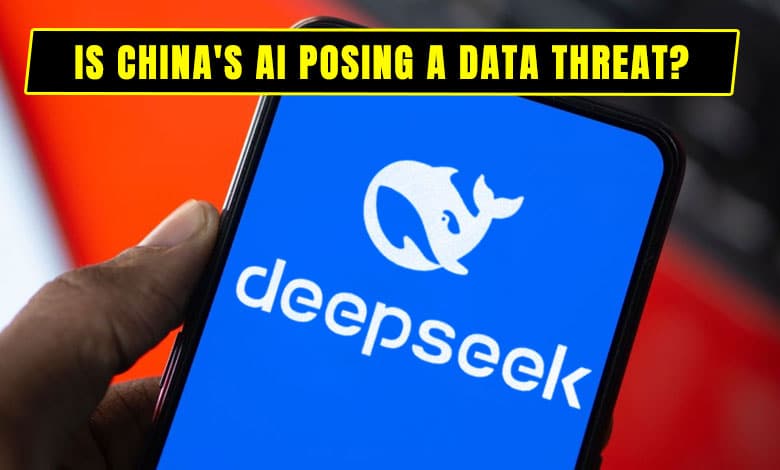Global Backlash Against DeepSeek: China Defends its AI Tool, Here What They Says
China has vigorously defended its controversial AI tool, DeepSeek, amid restrictions imposed by several countries, including India, on its use.

Beijing: In response to growing concerns over data security, China has vigorously defended its controversial AI tool, DeepSeek, amid restrictions imposed by several countries, including India, on its use. These nations have raised alarms over potential data leaks linked to the use of Chinese technology, prompting Beijing to reject what it describes as the politicisation of trade and technology issues.
Table of Contents
China’s Foreign Ministry spokesperson, Guo Jiakun, expressed discontent with what he termed the “overstretching of national security concerns” by foreign governments, stating that such measures were an attempt to politicise trade and technology. Speaking at a media briefing, Guo stressed that China has never and will never ask any company or individual to collect or store data in violation of laws, addressing fears stemming from the country’s 2017 national intelligence law, which grants the government extensive powers over private firms.
“China has always opposed moves that politicise trade and tech issues,” Guo said. “We will firmly protect the lawful rights and interests of Chinese companies.”
The controversy surrounding DeepSeek comes as multiple countries, including India, have imposed restrictions on government officials from downloading or using the AI tool, citing concerns over the confidentiality of government data and documents. India’s Finance Ministry issued a directive earlier this year, advising its officials against using AI tools such as DeepSeek and ChatGPT on office devices due to fears of potential data breaches.
Also Read: ChatGPT and DeepSeek Face Ban in India? – What You Need to Know About AI Chatbot Risks
Growing Global Scrutiny on DeepSeek’s Security
The concerns raised by India are echoed by other countries. South Korea has blocked its government departments from accessing DeepSeek, and reports indicate that Italy, Australia, the United States, and Japan have followed suit, citing similar data security apprehensions. These measures come amid an increasing scrutiny of Chinese AI products that have gained significant global traction in a short span of time.
Despite these security concerns, DeepSeek’s AI technology has garnered significant attention for its low-cost model. The AI tool’s latest offering, which is priced at just USD 6 million, stands in stark contrast to established AI models like ChatGPT, which are valued in the billions of dollars. DeepSeek’s R1 AI model also uses a fraction of the computational power required by its competitors, making it an attractive option for tech enthusiasts and businesses alike.
Last week, DeepSeek surpassed ChatGPT to become the top-ranked free app on the Apple App Store, catching the attention of the US tech industry. The rapid success of DeepSeek has raised eyebrows in the tech community, as it challenges the long-standing dominance of AI giants backed by substantial financial investments.
A New Era of AI Development Amid Controversy
As the world witnesses an increasingly heated debate over the balance between innovation and security, China remains steadfast in defending its position. With the rise of tools like DeepSeek, governments worldwide are grappling with the implications of foreign-made technologies that could potentially compromise sensitive data.
Beijing’s firm stance reflects its broader strategy to assert itself in the global tech space, while also protecting the interests of its companies amid mounting global opposition. With growing concerns over privacy, cybersecurity, and geopolitics, the fate of AI tools like DeepSeek remains a key issue in the ongoing dialogue between China and the rest of the world.
As more nations continue to weigh the risks and rewards of using DeepSeek and similar AI tools, the debate is far from over, and it is likely to shape the future of international tech relations.
